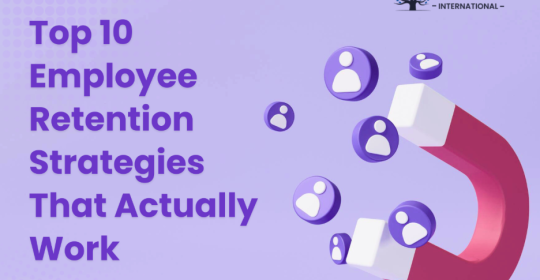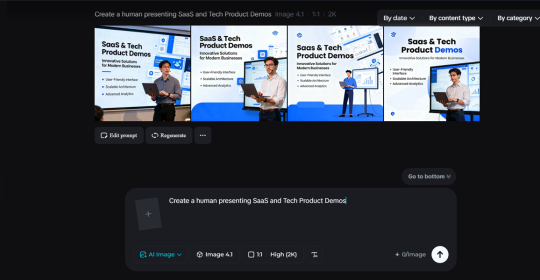As the healthcare landscape continues to evolve with technological advances and changing patient demographics, the need for specialized education in healthcare administration has never been more critical. To meet this need, educational strategies have emerged as key tools to equip healthcare professionals with the skills necessary to navigate this complex environment successfully.
The role of a healthcare administrator is multifaceted, involving everything from managing vast amounts of medical data to ensuring compliance with evolving healthcare laws. This article explores ten educational strategies that can significantly enhance the efficiency of healthcare administration and improve patient care. Each strategy not only addresses a specific aspect of healthcare administration but also contributes to a holistic improvement in how healthcare systems operate.
Let's delve into these transformative educational practices.
Leveraging Online Education
One effective way to enhance healthcare administration efficiency and patient care is through online educational programs, such as a masters in healthcare administration online. These programs offer the flexibility needed for professionals to continue their careers while advancing their education. Students can access a wide range of resources and learning modules at their convenience, ensuring that they can learn and apply new strategies without sacrificing their ongoing professional responsibilities. This mode of learning is not only convenient but also enables students to immediately implement best practices and innovative management techniques directly into their workplaces.
Interdisciplinary Training
Healthcare administration benefits immensely from interdisciplinary training. By understanding the intersecting fields of finance, policy, clinical operations, and even IT, administrators can make more informed decisions that enhance patient care and operational efficiency. Educational programs that encourage exposure to various aspects of healthcare not only broaden the perspective of aspiring administrators but also equip them with the tools to handle complex challenges in healthcare settings. For instance, knowing the financial implications of clinical decisions can lead to more cost-effective healthcare delivery without compromising patient outcomes.
Simulation-Based Learning
Simulation-based learning has taken center stage in training healthcare administrators. Through realistic and controlled simulations, students can experience the urgency and complexity of healthcare management tasks in a risk-free environment. These simulations often include crisis management, resource allocation, and ethical dilemmas, providing hands-on experience that is critical in preparing for real-world challenges. The use of simulations helps in developing a deep understanding of the consequences of each decision, training administrators to think critically and act decisively.
Continuous Professional Development
The field of healthcare is ever-evolving, driven by innovations in medical technology and changes in patient care standards. Continuous professional development is essential for healthcare administrators to stay current with these changes. Workshops, seminars, and certification programs play a crucial role in providing ongoing education that helps administrators adapt to new laws, technologies, and management practices. Such educational opportunities not only enhance an individual's skill set but also promote a culture of continuous improvement within healthcare organizations.
Leadership and Management Skills Development
Effective leadership is pivotal in any healthcare setting, influencing everything from staff morale to patient satisfaction. Educational strategies that focus on developing leadership and management skills are therefore critical. These programs teach prospective administrators how to lead teams effectively, manage complex organizational systems, and foster a positive work environment. Enhancing these skills can lead to better decision-making, improved team performance, and ultimately, higher quality patient care. Leadership courses often include training in conflict resolution, strategic planning, and employee engagement, all of which are vital for a successful healthcare administrator.
Incorporating Technology in Training
In today's healthcare landscape, integrating technology into the training of healthcare administrators is not just beneficial—it's essential. Familiarity with healthcare IT systems, such as Electronic Health Records (EHR) and telehealth platforms, can dramatically enhance the efficiency of healthcare services. Educational programs that include training on these technologies teach students how to streamline processes, improve communication between departments, and facilitate better patient care through more accessible data. Furthermore, understanding the latest technological tools allows administrators to implement solutions that can lead to significant cost savings and improved patient outcomes.
Ethics and Compliance Education
Ethics and compliance are the backbones of effective healthcare administration. Training programs must therefore emphasize the importance of ethical practices and legal compliance within healthcare settings. This education helps prevent violations that can lead to legal repercussions and damage to the institution's reputation. By understanding the laws and ethical guidelines that govern their actions, administrators can make decisions that uphold the integrity of healthcare services and protect patient privacy. Regular training in these areas ensures that administrators are aware of new regulations and ethical concerns, preparing them to act responsibly and legally in all situations.
Communication Skills Enhancement
The ability to communicate effectively is crucial for healthcare administrators. They must often convey complex information clearly and concisely to a variety of stakeholders, including medical staff, patients, and insurance companies. Enhancing communication skills through targeted training can lead to better collaboration among teams, clearer patient instructions, and more effective crisis management. Educational programs that focus on developing these skills can teach administrators how to handle difficult conversations, provide constructive feedback, and foster an environment of open communication, which is essential for efficient operation and high-quality patient care.
Data Analytics and Decision Making
Data analytics is transforming how healthcare administrators make decisions. With a strong foundation in data analysis, administrators can identify trends, predict outcomes, and make evidence-based decisions that improve patient care and organizational efficiency. Educational strategies that incorporate data analytics training equip healthcare professionals with the skills to interpret vast amounts of data quickly and accurately. This ability is crucial for optimizing resource allocation, planning preventive healthcare measures, and managing patient care more effectively. By integrating data analytics into the curriculum, educational programs can prepare administrators to be proactive rather than reactive in their strategies.
Cultural Competency Training
As populations become more diverse, cultural competency becomes increasingly important in healthcare. Training programs must prepare administrators to understand and meet the unique needs of diverse patient groups. Cultural competency education helps administrators recognize and address potential barriers to care, such as language differences, cultural misunderstandings, and varying health practices. This understanding can lead to more personalized and effective care, improving patient satisfaction and health outcomes. It is essential for healthcare administrators to foster an inclusive environment that respects and responds to the diverse backgrounds of the patients they serve.
Conclusion
The strategies outlined in this article highlight the multifaceted approach needed to enhance healthcare administration efficiency and improve patient care. From leveraging technology and continuous professional development to emphasizing ethics, communication, and cultural competency, these educational strategies are pivotal. They not only prepare healthcare administrators to manage the complexities of the modern healthcare environment but also equip them to lead with integrity and compassion. Implementing these educational tactics will ensure that healthcare administrators are well-prepared to face the challenges of their roles, ultimately leading to better patient outcomes and more efficient healthcare systems.






